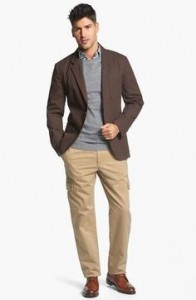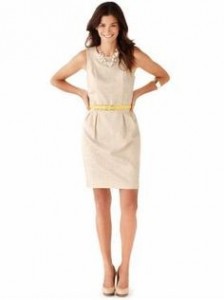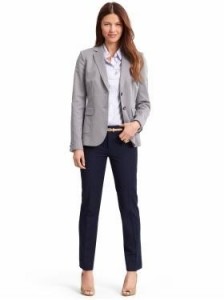5 Must-Do’s To Prepare For A Job Interview
Securing a job interview is something to be proud of; after all, you managed to stand out and impress an employer enough to want to learn more about you and your work experience. Although this presents an exciting opportunity, job interviews tend to cause a great deal of anxiety and stress for even the most qualified candidate. Luckily, there are several things you can and should do to prepare yourself for the big day, which will ultimately help alleviate some of the interview jitters:
- Review your resume– It’s obvious. Most of the questions that will be asked during your job interview will be generated from your resume; therefore, it should be the first place to start when preparing for your interview. Even if you’ve read and edited your resume a hundred times, reviewing it will help remind you of specific information you’ll want to highlight during your interview, such as roles, tasks, and skills practiced and obtained during your work experience, schooling and/or training. Reviewing your resume will also prepare you to discuss pros and cons, as well as reasons for leaving previous positions. Finally, evaluating your qualifications will help you to determine what further knowledge or skills you may need to fulfill the desired position. Expressing long term goals as an employee of the company you’re applying for demonstrates initiative and interest.
- Notify your references– It is important that you inform your references ahead of time of a possible contact from an employer, so that they make sure to be available and also have sufficient time to prepare for the call or email. If it has been a while since you last worked with one or several of your references, it may be a good idea to review together some of the important details he/she will be asked about during the reference call, such as dates of employment, position held, responsibilities, and reason for leaving. A word of advice- if you didn’t leave a previous position in the best of terms, you should consider removing that employer from your reference list (not your resume).
- Research the company– It’s always a good idea to know as much as you can about the company you are applying at before a job interview. For starters, you want to be certain that it is indeed a good match for you both professionally and personally. If you find that you are a good match, you’ll want to discuss the connection during the interview. Perhaps through research you find that you share similar professional interests or goals as the company. The interview is the ideal place to discuss your specific interest in the company and why you feel you would be an important addition to the team.
- Dress professionally– Although certain professions require distinct attire, business casual is the standard office dress code appropriate for job interviews. Please note that even though the clothing style is considered casual, this does not mean all clothing items are acceptable. Here’s a quick reference:
For men, choose shirts with collars, such as button-down long sleeve shirts, tucked in with a pair of cotton slacks or khakis, a leather belt and matching shoes.
For women, choose skirts or dresses where the hem falls right above the knee or longer, button-down shirts or conservative blouses, cotton slacks or khakis, and closed shoes. Wear minimal make-up and accessories, and style your hair professionally.
For both genders, avoid clothes with bold colors or loud patterns, clothes that are tight fitting, revealing, or oversized, jeans, open toe shoes, or any garment that is distracting or simply unprofessional. When in doubt, search the Internet for “business casual for men or women.” WikiHow is a good place to start.
- Display positive body language– Being qualified for the position is important, but it isn’t everything. During a job interview, employers are also assessing your personality and body language to see if you’re personable and able to work well with others. Some examples of positive body language are making eye contact, sitting up straight, smiling, nodding, and giving a firm hand shake. Negative body language is appearing disinterested, avoiding eye contact, yawning, tapping foot or fingers, or slouching. It’s important to remember that an interview is mainly a conversation; therefore, participate in answering and asking questions, as well as listening attentively throughout the interview process. If both you and the employer enjoy the conversation, chances are you made the right first impression.
What are some additional things you do to prepare for a job interview? Are there certain things that help you limit interview anxiety? Let’s discuss!
* * *
Stay tuned for…
[Commonly Used Interview Questions]













